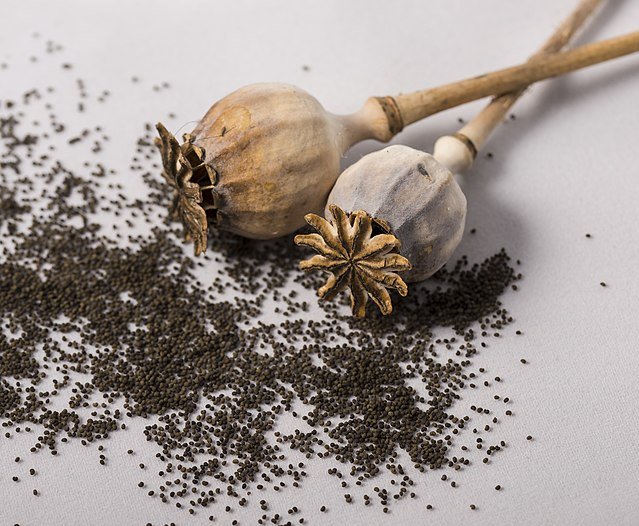Pentagon Declares War on Poppy Seeds
/By Pat Anson, PNN Editor
The U.S. Department of Defense is escalating its war against opioids beyond just oxycodone, hydrocodone and other pain medications.
In a February 17 memo, a top Pentagon official warned all military service members that eating foods containing poppy seeds could result in a failed drug test.
“Recent data suggests poppy seeds varieties may have higher codeine contamination than previously reported. Consumption of poppy seed products could cause a codeine positive urinalysis result and undermine the Department’s ability to identify illicit drug use. Out of an abundance of caution, I find protecting Service members and the integrity of the drug testing program requires a warning to avoid poppy seeds,” wrote Gilbert Cisneros, Jr., the Undersecretary of Defense for Personnel and Readiness.
Cisneros did not specific what the “recent data” was or where it came from. Tiny black seeds from the poppy plant – most of which come from Afghanistan -- can become contaminated during harvesting with trace amounts of codeine, morphine and other opiates. Drug users have found they can then use unwashed seeds to make a potent homemade tea to relieve pain.
Given how widely used washed poppy seeds are in muffins, cookies, salad dressings and cosmetics, the threat posed by them may sound rather comical. But some organizations take it very seriously.
The Center for Science in the Public Interest (CSPI) has petitioned the Food and Drug Administration to set a safe threshold for opiate alkaloids in imported poppy seeds, citing a study that claimed 19 people in the U.S. suffered fatal overdoses after ingesting poppy seeds in recent years.
“The time is overdue for the FDA to establish standards that will protect U.S. consumers from ingesting dangerous levels of opiates through the food supply,” said Peter Lurie, MD, President of CSPI.
In 2019, the Drug Enforcement Administration even classified unwashed poppy seeds as a Schedule II controlled substance, claiming they were “qualitatively similar” to opioid pain medications.
“Unwashed poppy seeds are a danger to the user and their abuse may result in unpredictable outcomes including death,” the DEA said.
Eating poppy seeds could be risky for someone taking a drug test. A 2020 study found that consuming just few seeds in a muffin or bagel could result in a positive drug test – a finding that could get a patient dismissed by their doctor or an employer refusing to hire a job applicant.
The Pentagon may also be trying to save money with its new directive. Simple urine drug screens performed in a doctor’s office are relatively cheap – and often wrong. False positive results should be confirmed with a mass spectrometry test performed in a laboratory, but those tests usually cost thousands of dollars. It’s cheaper to just tell military personnel to stop eating bagels.
“The Military Departments are hereby directed to notify Service members to avoid consumption of all poppy seeds to include food products and baked goods containing poppy seeds. Service members are directed to work with their local legal office for any related concerns with urinalysis results,” Cisneros wrote in his memo.
The Pentagon and Department of Veterans Affairs (VA) have long taken a dim view of opioids. In recently updated medical guidelines, the agencies recommend that opioid medications not be used to manage non-cancer chronic pain.




